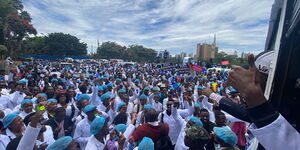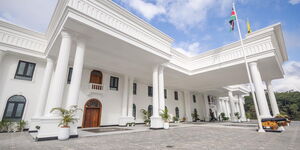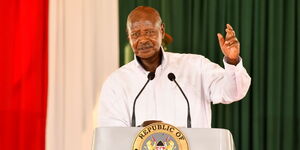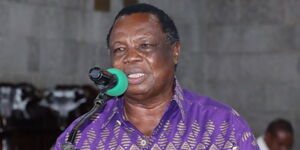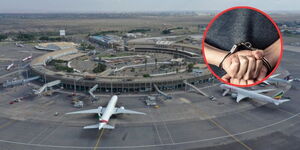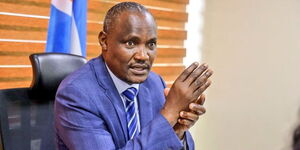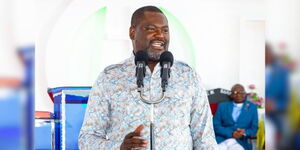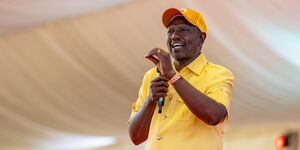Religious leaders under the Kenya Conference of Catholic Bishops (KCCB), the National Council of Churches of Kenya and the Supreme Council of Kenya Muslims have issued new demands they want to be discussed in the bipartisan talks scheduled for Monday, August 14.
On Friday, August 11, the leaders asked President William Ruto and former Prime Minister Raila Odinga's representatives to include national unity, cohesion, poverty, unemployment, and graft.
They argued that the five contentious issues were among the deeply rooted traditional factors affecting peace and tranquillity in Kenya.
While stating their demands, the religious leaders also urged the bipartisan talks to expand to include experts and neutral entities such as religious organisations rather than focusing only on politicians and law experts.
"This will assure an absence of political bickering during the talks, hence, giving the citizens a chance to build their lives as leaders work to restore peace in the country," Bishop Martin Kivuva read the statement on behalf of the religious leaders.
1. National Unity
While asking the Kenya Kwanza and Azimio la Umoja coalitions to consider national unity as one of the items that should be discussed during the Bipartisan talks, the religious leaders stated that in recent years, there have been some positive developments in terms of national unity, but a lot still needs to be done.
They acknowledged that the 2010 Constitution, for example, created a more decentralised system of government that gives more power to the regions. This has helped to reduce the feeling of alienation among some communities.
"National unity is essential for Kenya's future. Without it, the country will be unable to achieve its full potential. It is important for all Kenyans to work together to build a more united and prosperous country," the religious leaders observed.
2. Cohesion
In their statement, the leaders claimed that the lack of national cohesion can be attributed to a number of factors, including inequality since there is a significant gap among communities and between the rich and the poor in Kenya.
"Kenya has a history of political instability which has made it difficult to build trust and cooperation between different groups. This is why we are calling on the political leaders to discuss this matter," the statement read in parts.
The leaders also recognised the role that National Cohesion and Integration Commission (NCIC) continues to play, but they asked the political figures to consider more far-reaching programmes and initiatives that are designed to build trust and understanding between different groups.
3. Poverty
Bishop Kivuva raised concern over the state of poverty in the country, noting that it was concerning that a number of Kenyans still live below the poverty line.
The religious leaders pegged their argument on 2023 World Bank indicators which stated that 16.1 per cent of Kenyans cannot raise around Ksh200 ($1.90) per day.
This means that over 10 million Kenyans are struggling to meet their basic needs for food, shelter, clothing, and healthcare.
According to religious leaders, many factors contribute to poverty in the country, including high unemployment and low wages.
"Even for those who are employed, wages are often very low. The average monthly wage in Kenya is around Ksh10,000. This is not enough to support a family on," the leaders stated.
4. Unemployment
On the issue of unemployment, the religious leaders stated that the Kenya National Bureau of Statistics (KNBS) indicated that the unemployment rate in Kenya stood at 5.5 per cent in 2022.
"This represents a steady incline in the state of unemployment in the country, with the majority being young people who have or want to start families," the religious leaders acknowledged.
They noted that women are more likely to be unemployed than men in the country and thus asked the political class to address the contributing factors, such as discrimination, lack of access to education and training, and overburdening family responsibilities.
5. War on Graft
While referencing former President Uhuru Kenyatta, who claimed that Kenya loses some Ksh2 billion daily, the religious leaders observed that graft is a national crisis that must be addressed at the Bipartisan talks.
They regretted that money that could be used to improve education, healthcare, and infrastructure was embezzled by powerful individuals in society, some of whom are in the government.
The religious leaders demanded the establishment of strong institutions that can adequately tackle graft.
"There is a lack of transparency in the country which makes it difficult to track how public money is being spent. The weak rule of law makes it difficult to enforce laws against graft," the leaders observed.


